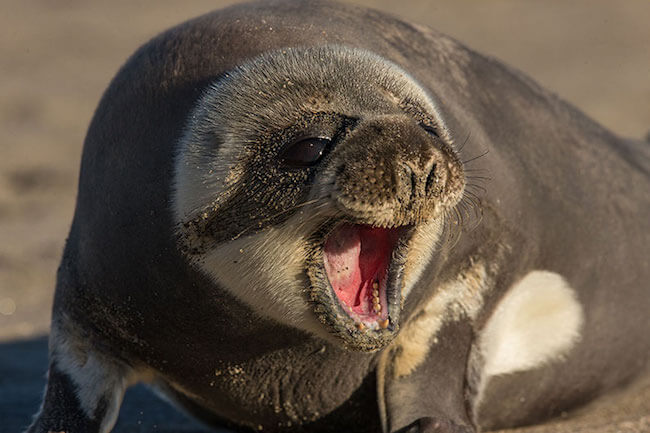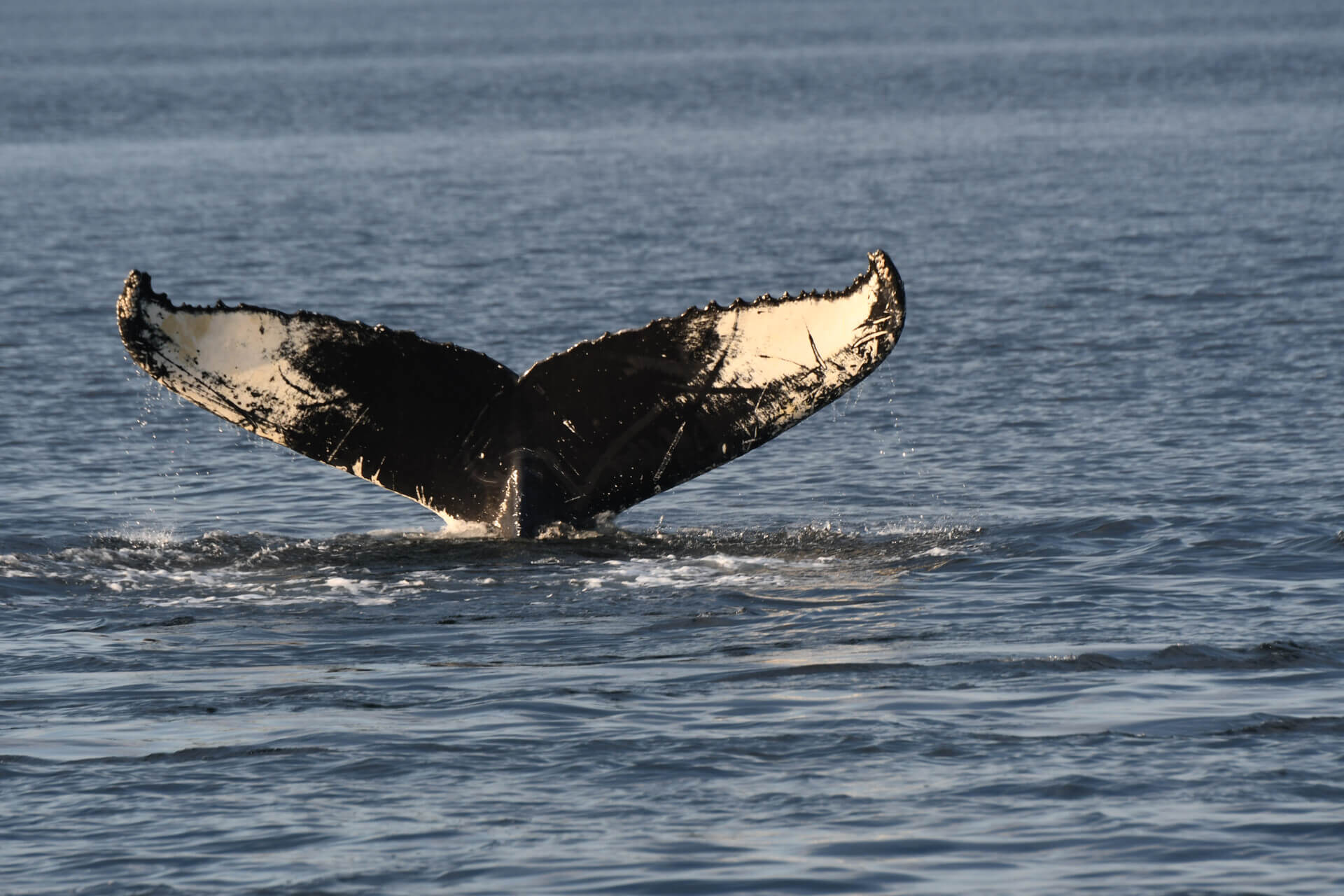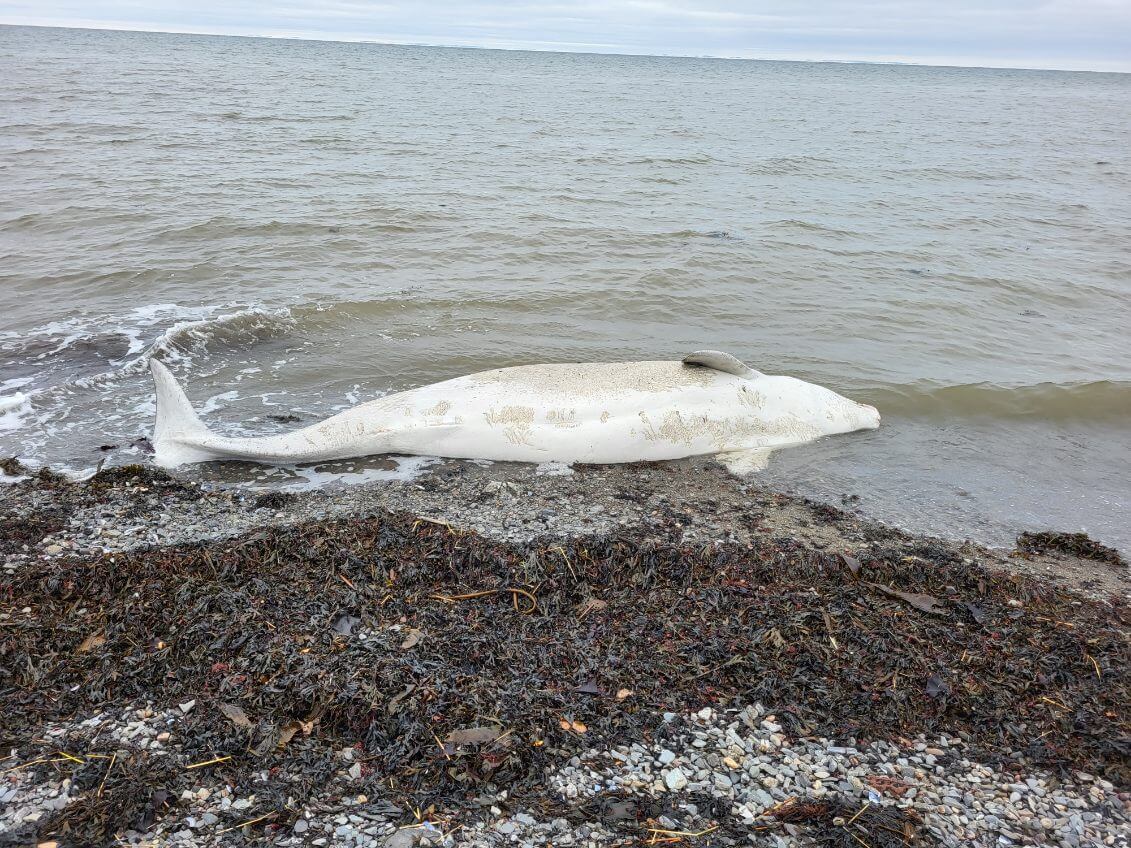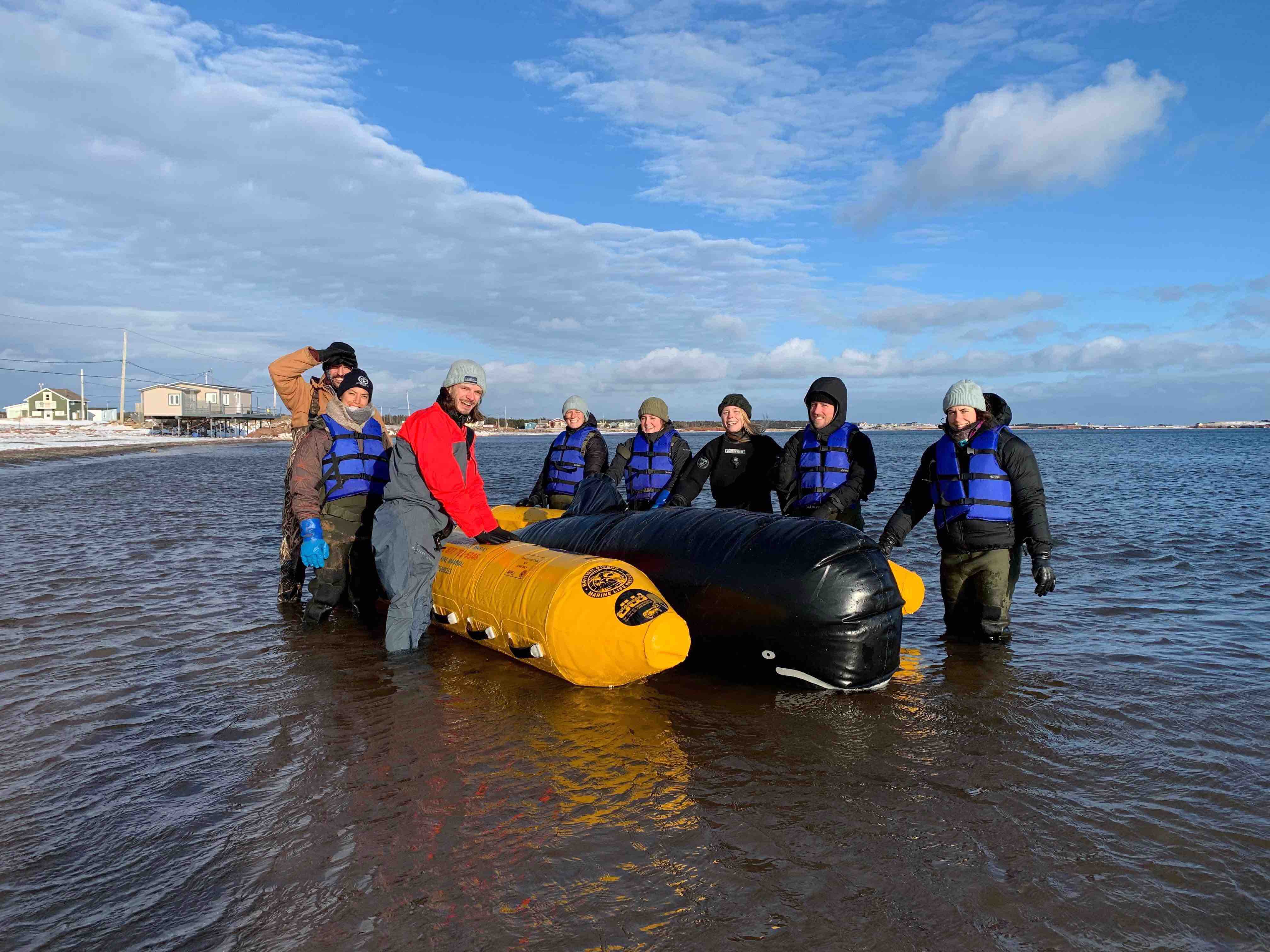During the winter months, various species of seals are naturally present on the shores of the St. Lawrence Estuary, and they represent the majority of the reports that the 1-877-7baleine receives during this period. As a reminder, if you happen to observe a seal:
It is always important to maintain a distance of at least 50 metres from a live seal, regardless of whether or not it is in difficulty. Indeed, these animals may seem peaceful and harmless when observed, but one should not forget that, as adorable as they might appear, they are wild animals that can react unpredictably and sometimes become aggressive if they feel threatened.
Seals naturally live part of their life on dry land. It is therefore not unusual to observe them on the river banks or on the ice. Despite the fact that they are marine mammals like whales, seals have retained a connection to the land. Unlike whales, seals breed and give birth on shore or on ice floes. The pupping period varies from one species to another, but usually occurs from late winter to spring, i.e. between February and mid-June. Seal pups can remain alone on land for several days while waiting for their mothers to return to feed them. Additionally, seals need to rest on dry ground, sometimes for hours at a time.
While the harbour seal, which is present year-round in the St. Lawrence, measures 1.5 metres long and weighs 100 kg, a hooded seal can measure up to 2.5 metres and tip the scales at 300 kg, not to mention its powerful jaw. It is better to maintain your distance and observe them from afar so as not to disturb them.
For all these reasons, you should never attempt to coax a seal back into the water. This is illegal under Canada’s Marine Mammal Regulations. If you observe a live seal and you have a doubt about its condition, take photos and/or videos and promptly contact the Quebec Marine Mammal Emergency Response Network.
If you find a dead or struggling marine mammal, please report it without delay by calling 1-877-7BALEINE (1-877-722-5346).







